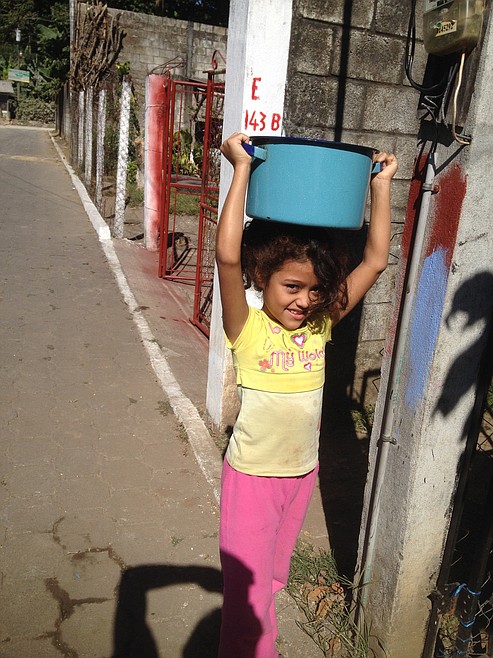Libby Rotarians work to improve water supplies in Guatemala
Libby Rotarians are at the forefront of a collaborative humanitarian project in Guatemala that is providing one of life’s basic needs — clean water.
The Rotary Club of the Kootenai Valley has been involved in helping communities in the Central America country get access to clean water since Libby Rotarian George Gerard got the ball rolling in 2006.
“It’s been quite a learning process,” Gerard said. “What’s gratifying is the people; they’re so appreciative.”
Gerard and fellow Libby Rotarian Mick Shea, along with Sandy Carlson of the Kalispell Daybreak Rotary Club and Pat Murtagh with Engineers Without Borders recently returned from a trip to Guatemala to gather the final information and documentation needed for the Rotary International grant application for the Guatemala coalition’s water project for the community of El Progreso.
Eight Rotary clubs in Northwest Montana, along with the Missoula Sunrise Rotary Club, pool their financial resources to help fund the Guatemala water projects, Gerard explained.
“We’ve taken the lead in grant writing,” he added about the Libby area Rotarians.
Rotarians in Northwest Montana work in tandem with Rotarians of the Mazatenango Club on water projects that have been completed through the years.
Shea, who has done much of the grantwriting work for the Guatemala projects, said collaboration is key.
“The way Rotary operates, before a Rotary club in the U.S. can go into a country to do any work, you need to be invited by another Rotary club, a host club,” Shea explained.
Rotary Club of the Kootenai Valley uses only 7 percent of its budget for the Guatemala work, opting to keep most of its funding for projects in the Kootenai Valley, he noted.
During the most recent trip the Northwest Montana contingency met with village leaders in El Progreso to get papers signed, measurements made and “to renew our friendships and assure the villagers that we are determined to complete this project,” Carlson said.
Later in the week they met with leaders of the community of Pezac and the organization Fundazucar, and with the townspeople of La Vega, home of a future water project.
“We accomplished much in a very short time,” Carlson said.
Shea, who has traveled to Guatemala seven times for Rotary projects, said there’s a great need for clean water in many parts of the country, particularly in rural villages.
“You would think a country with such a rainy season would have plentiful water, and they do have water, but it seems to be almost universally contaminated,” Shea said. “The whole effort we’re doing down there is focused on clean water.”
Many of the projects have involved helping communities access an artesian spring, build a catchment and holding tank, and piping for the water system.
“If you properly catch the water and cover it, the water is clean,” Shea said.
Most villages simply don’t have the money to cover the cost of materials, design and engineering work and the skilled labor for building the concrete water tanks, he added.
With rugged terrain in much of Guatemala, building materials typically must be carried up a mountainside by villagers who ultimately will benefit from the water system improvements. That means hauling cement, rebar, sand, gravel and other materials.
“The prospect of getting clean water is life-altering,” Shea said.
Not only does clean drinking water dramatically lessen disease from water-borne illnesses, it also improves the quality of life by having water for washing and cooking.
While many of the projects have been completed in mountainous terrain, the Rotarians now are working in Guatemala’s coastal plains, helping to provide funding for new water wells. Beyond getting the well dug, the grant funding helps communities create a reserve fund to pay for service calls and for the eventual replacement of the pump.
Other Libby Rotarians who have been involved in trips to Guatemala include Eileen Carney, who has gone almost every time as the translator, Gary Huntsburger, Carolyn and Laurie Duart and Gerard’s wife Linda.
The next trip will be in January, Gerard said, when Rotary will conduct a project fair in Belize, an opportunity for clubs to present projects they’d like to see done.
“Rotarians from North America present these projects,” he said. “Most of the clubs coming down are looking for projects.”
Gerard said he’ll have a booth set up for another deep-well project and eventual sewer system for La Vega, a Guatemalan community of 1,200.

